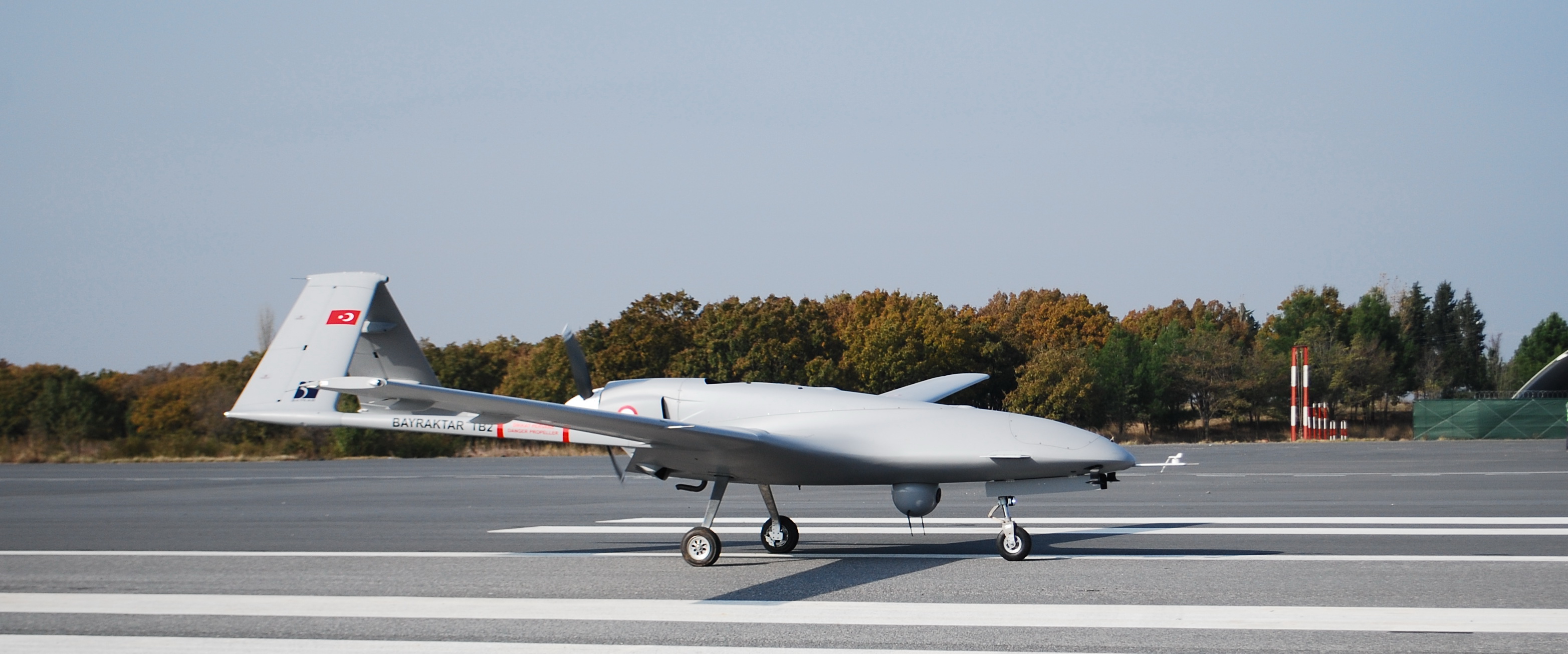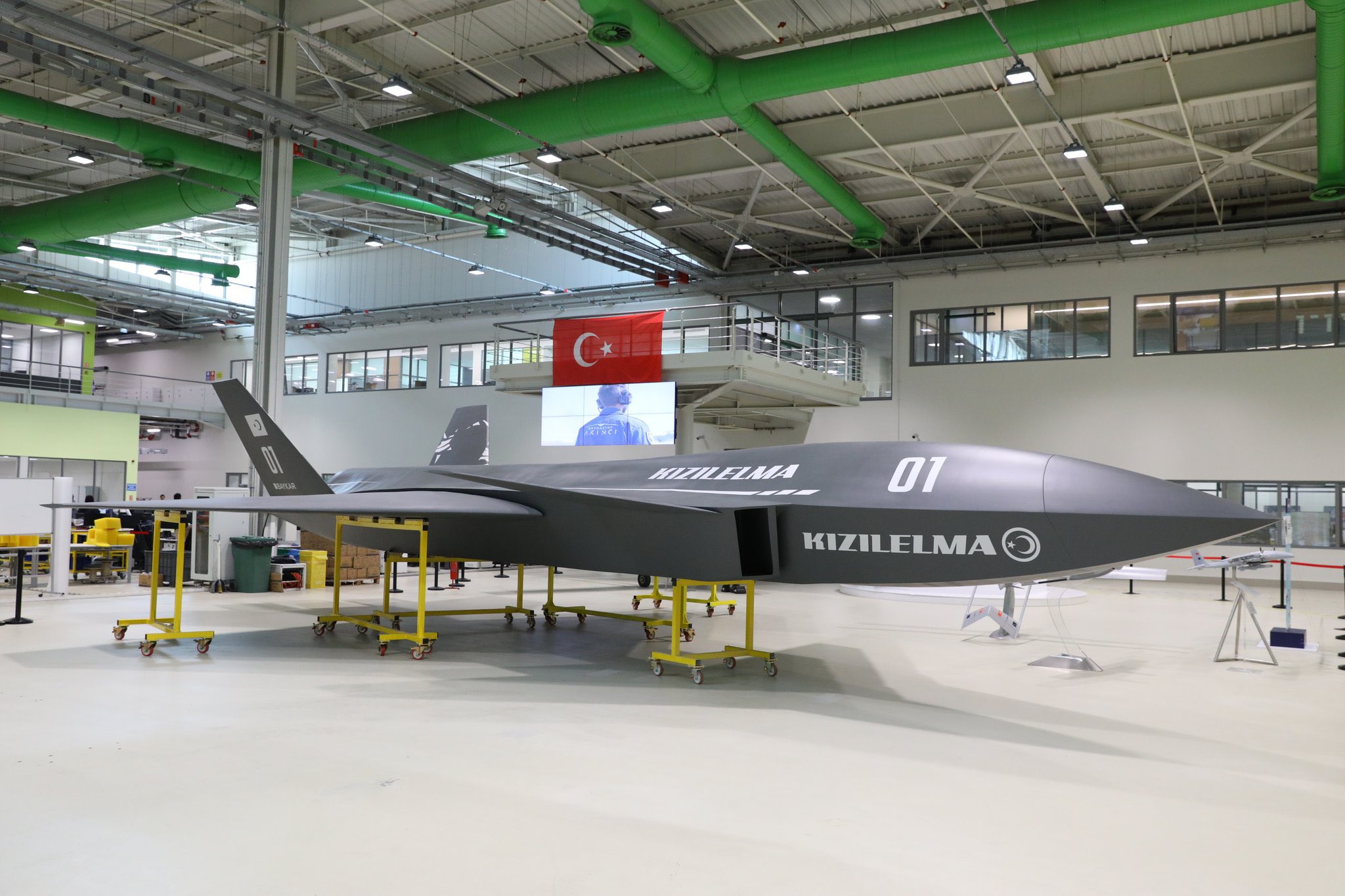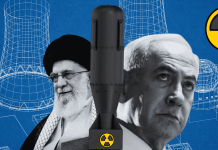Turkish firm Baykar Defense has revolutionized modern combat by producing cutting-edge drones that have shown their mettle globally. The world started taking notice of Baykar’s prowess when the Bayraktar TB-2 shot to fame in the September 2020 Nagorno-Karabakh War between Azerbaijan and Armenia, where it wreaked havoc on the Armenian troops.
Later, the TB2 drone’s combat performance in Ukraine sparked international interest, and buyers quickly lined up to place orders. Baykar has since become known as one of the world’s most successful drone manufacturers.
The strides made by Baykar have immensely contributed to Turkey’s meteoric rise as the manufacturer and exporter of weapons. Today, it has emerged as a global symbol of Turkish military might, with more than 80% of its revenue coming just from exports.
For Turkey, this is no ordinary feat. Turkey was the world’s third-biggest arms importer in the early 2000s. However, its reliance on foreign military imports has plummeted drastically, from around 80% in 2004 to less than 20% today. Baykar is one company that has been an engine of this extraordinary growth.
Today, the UAVs produced by Baykar have been deployed on diverse battlefields across the world, proving their combat prowess in different geographies and environments.
Baykar was not always the big corporation that it is today under the watch of Selcuc Bayraktar, the chairman and Chief Technology Officer (CTO), and his brother Haluk Bayraktar, the Chief Executive Officer (CEO).
It was once just a dream of one man—Ozdemir Bayraktar—who only wanted to aid Turkey’s efforts to indigenise the country’s automotive industry.
How Was Baykar Born?
Born in 1949, Ozdemir graduated from Istanbul Technical University’s Mechanical Engineering Department in 1972. Ozedmir founded Baykar as Baykar Makina in 1984 to produce automotive parts such as engines, pumps, and other components that would aid the indigenization of Turkey’s automotive industry, which was dependent on foreign parts.
The company started production of Automotive Machine parts in 1986.
Baykar was established as an engineering firm with competitive domestic capital, making it 100% Turkish. After producing automotive parts for several years, the company started producing unmanned aerial vehicles in the early 2000s.
At the dawn of the 21st century, in the year 2000, Baykar launched Research and Development (R&D) on Unmanned Aerial Vehicle Systems (UAVs). This was a watershed moment in the company’s history and one that would change the destiny of Baykar as well as that of Turkey.
A few years later, in 2004, Baykar carried out the first UAV flight using indigenous electronic and software systems. This was a massive milestone for the company.
Some accounts suggest that Ozdemir decided to manufacture UAVs along with his son Selçuk, who was then a PhD candidate at the Massachusetts Institute of Technology (MIT), studying unmanned aerial systems. In 2005, Selçuk Bayraktar took it upon himself to indigenously develop advanced drone technology.
He called upon Turkish officials to invest in drone technology.
“If Turkey supports this project, these drones, then in five years, it can easily be at the forefront of the world in this field.”
A tender for ‘Mini UAV’ was issued, and later that same year, the company conducted the autonomous flight demonstration of the Bayraktar Mini UAV at a Turkish Aerospace Industries (TAI) facility. The development and production of the drone started in 2006.

The success in developing the Mini UAV emboldened Baykar, and it launched R&D on a ‘rotary wing’ Mini UAV in 2006.
Subsequently, the Rotary Wing Mini UAV was also delivered in 2009.
Following this, a new era of drone manufacturing commenced in Baykar. What followed was Turkey’s Tactical UAV System program, which would go ahead and result in the development of the Bayraktar TB1 and, by extension, the development of the TB2 UAV.
Baykar’s Quest With Tactical UAV Development
Baykar created a TB1 prototype UAV for the Tactical UAV program Undersecretariat for Turkish Defence Industries (Savunma Sanayii Mustesarligi, or SSM).
In 2009, the Kale Group and Baykar Technologies collaborated to form Kale-Baykar. They showcased their tactical UAV along with its twin redundant avionics system and completely autonomous takeoff and landing capability to the Turkish officials. The aircraft was selected as the winner of the program in 2010.
The Bayraktar TB1 was merely a prototype and never delivered to the armed forces. However, it became the basis for the production of the popular Bayraktar TB2 UAV.

Rapid advancements were made with the development of the TB2, a twin-engine propeller aircraft big enough to carry missiles that could hit a target up to 8 kilometers away with accuracy and fly for over 24 hours without refueling. The TB2 tactical UAV took to the skies for its test flight in 2014, and the first batch was delivered to the Turkish Armed Forces that same year.
The TB2 has since commanded the reputation of being the world’s most popular drone. It first made headlines in 2016 when it was deployed by Turkey in the ‘Operation Euphrates Shield’ in Northern Syria.
This marked the first kill made by the TB2. The drone has demonstrated exceptional combat performance across battlefields, including in the 2020 conflict between Azerbaijan and Armenia over the enclave of Nagorno-Karabakh, in the Ukraine War, and in multiple African countries.
As the New Yorker said in a previous article, the TB2 brought “the tactic of the precision air strike to the developing world and reversing the course of several wars.”
Qatar became the first country to purchase the TB2 in 2018, followed by Ukraine. Over two dozen countries have purchased the TB2 UAV so far, making it Baykar’s biggest success story. In addition to the TB2, Baykar has produced some of the most advanced Unmanned Aerial Vehicles (UAVs) of modern times—Akinci, Kizilelma, and TB3.
Building upon the success in the development, production, and export of the TB2, Baykar went on to develop the Akinci. The drone was delivered to the Turkish Armed Forces in 2021.
Named after the Turkish word for ‘Raider,’ Bayraktar Akinci is a high-altitude, long-endurance drone that can be armed with weapons. The drone is equipped with a variety of air-to-air and air-to-ground missiles.
According to Baykar, the drone can perform maneuvers similar to fighter jets and carry a range of payloads. The Akıncı can strike targets on land and in the air. It can also fly higher and stay in the air longer than Turkey’s current drone fleet.

Following the May 2024 crash of an Iranian chopper transporting former President Ebrahim Raisi, the Akinci also assisted with search and rescue operations. The Akinci has already been purchased by Pakistan, Azerbaijan, Libya, Ethiopia, Burkina Faso, and Mali.
Moreover, at least two countries, including Saudi Arabia and Kyrgyzstan, have expressed interest in the drone.
What came next would stun the world: the Kizilelma or the National Unmanned Combat Aerial Vehicle System (MIUS). Kizilelma took its first flight in 2022. Speaking at Teknofest in 2022, Selcuk Bayraktar said, “Kizilelma is [Türkiye’s] first unmanned fighter aircraft. We have been waiting for it for 20 years.”

Developed by Baykar, Kizilelma is an unmanned fighter jet that is expected to carry out a wide range of military operations, including close air support (CAS), missile offensives, suppression of enemy air defenses (SEAD), and destruction of enemy air defenses (DEAD).
The Turkish Kizilelma unmanned aircraft is anticipated to fly for five hours and travel at speeds of up to 800 kilometers per hour or a speed of Mach 0.64. With a maximum take-off weight of 6 tons, the drone is planned to have a 1,500-kilogram payload capacity.
As per reports, this aircraft will likely fly with Turkey’s upcoming fifth-generation aircraft, KAAN.
In addition to Kizilelma, the company has also developed the TB-3, the carrier-tailored version of the Bayraktar TB2 drone, which is bigger and better than the TB2.
With foldable wings and the ability to take off from short runways, the TB3 is set to become the first combat drone in history capable of launching and landing on a short runway like the TCG Anadolu.

The TB3 UCAV is capable of intelligence, reconnaissance, surveillance, and attack missions using the smart weapons installed under its wings. The TB3 entered the flight testing phase last year and carried out an impressive 32-hour flight during a test in December, setting a new record for Bayraktar-class UAVs. TB3 entered mass production last year.
Ozdemir Bayraktar, the founder of this aerospace behemoth, passed away in 2021. However, the legacy he left continues to live on.
Forty-one years after it was set up, Baykar has managed to become an aerospace behemoth in Turkey and a world leader in UAV manufacturing—a “revolutionary” feat, as stated by Selcuk Bayraktar.
“There is a lot more self-confidence in youngsters, in startups, and in technology companies thanks to our [Baykar’s] success in the defense industry,” he said in a previous interaction.
- Contact the author at sakshi.tiwari9555 (at) gmail.com
- Follow EurAsian Times on Google News




